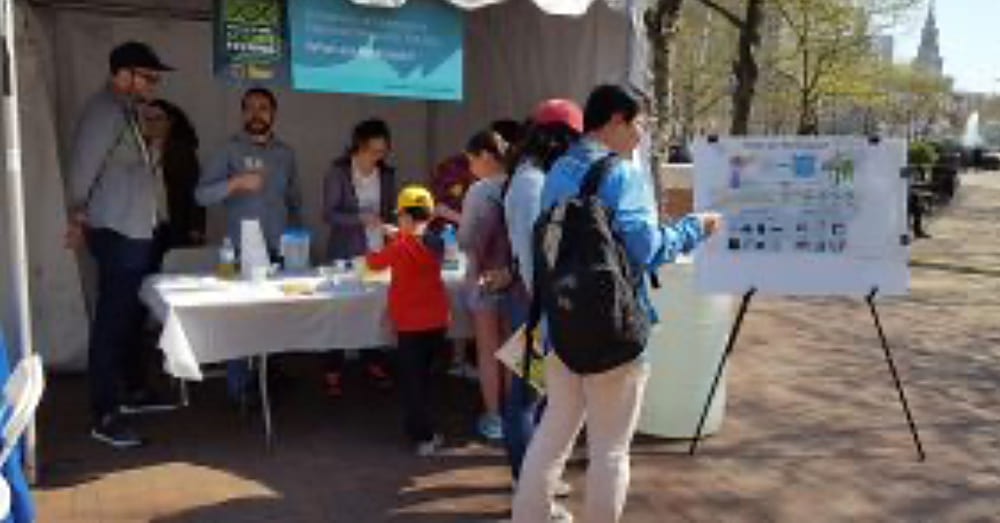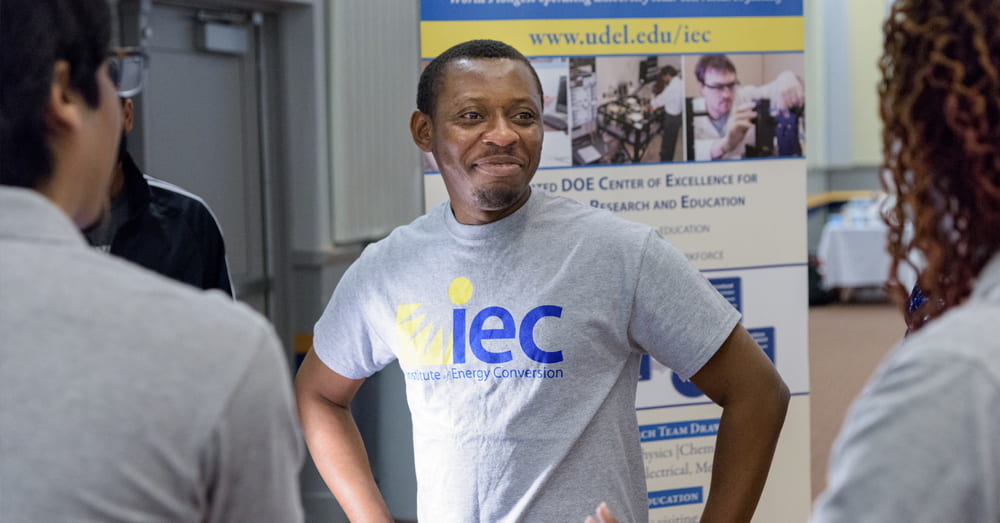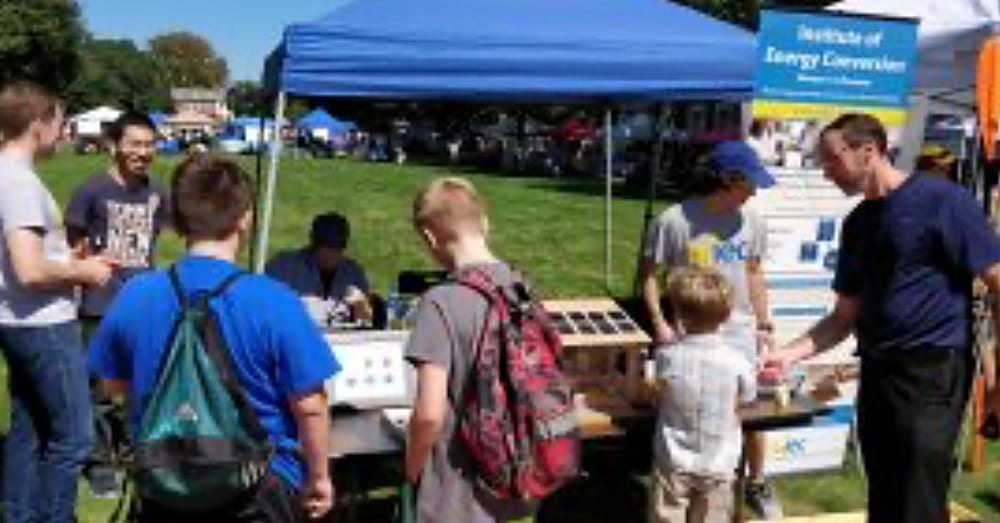Graduate Student Research and Education
Solar Energy Related Classes and Sustainable Energy Technology Minor
Undergraduate Research Assistant Opportunities
Community Outreach
- Chemical Engineering
- Chemistry & Biochemistry
- Electrical & Computer Engineering
- Materials Science & Engineering
- Mechanical Engineering
- Physics & Astronomy
Graduate students should indicate their interest in performing research at IEC on their application letter. Currently three IEC Staff have joint academic appointments allowing them to directly advise graduate students: Dr. Ujjwal Das (affiliated appointments in Electrical and Computer Engineering and in Materials Science and Engineering), Dr. Steven Hegedus (joint appointment in Electrical and Computer Engineering) and Dr. William Shafarman (joint appointment in Materials Science and Engineering). Students from other departments can be co-advised with a faculty from that department and any IEC staff member. Applicants are strongly encouraged to reach out to IEC researchers first to discuss your interests and current funding opportunities. If you are unsure who to contact, please email Sherry Stewart at iec-solar@udel.edu. Once accepted by the academic department that you apply to, your ability to work with researchers at the IEC will depend on availability of funding and the approval of IEC staff.
Interested students can get graduate school application materials from the University’s web site at https://grad.udel.edu/forms/
ELEG 628 Solar Energy Technology and Applications (3 cr.)
The course is open to Engineering seniors and graduate students or others with permission. Taught by Professor Steven Hegedus.
Other classes which may include aspects of Solar Electricity
ELEG 437/637 – Energy Systems (3cr.)
ELEG 417/617 – The Smart Grid (3cr.)
This Smart Grid course addresses the modernization of the electric grid by looking for ways to make the grid smarter through the use of communications and information technologies, while trying to meet the overarching objectives of increasing grid reliability and resiliency, making the grid more secure, and integrating renewables and other new technologies into grid. Students in this course will learn the fundamentals of the Smart Grid and will examine and analyze Smart Grid technologies, architectures, and applications.
Building a smarter electric grid will cause major shifts in the way electric power gets delivered and used. These shifts have the potential to cause radical changes in the electricity sector in the same way that new technologies transformed the telecommunications sector. Students will learn about the many implementation challenges that utilities face as the Smart Grid evolves, including the transformational impacts of the Smart Grid on the industry.
ENEP 425/625 – Energy Policy and Administration (3cr.)
ELEG 457/657 – Design and Operation of Renewable Energy Microgrids (3 cr)
This course will cover the design and operation of reliable, economical microgrids integrating generation (photovoltaics, fuel cells, gas generators, and wind turbines), energy storage, sensing, communication, cybersecurity, and control. Concepts will be reinforced through the students’ use of industry standard HOMER Grid software tool for techno-economic analysis. We will include both case-studies of existing microgrids and student design projects using HOMER Grid. The course is co-taught by Professor Hegedus and Professor Lutz.
Sustainable Energy Technology Minor
- Chemical Engineering
- Chemistry & Biochemistry
- Electrical & Computer Engineering
- Materials Science & Engineering
- Mechanical Engineering
- Physics & Astronomy
There are a variety of opportunities for undergraduate research sponsored by the University which IEC participates and specific details on the programs is available at urp.udel.edu. In addition, IEC supports students working as paid interns for the summer and during the academic year.

Philadelphia Science Festival

UD Brain-STEM Day

